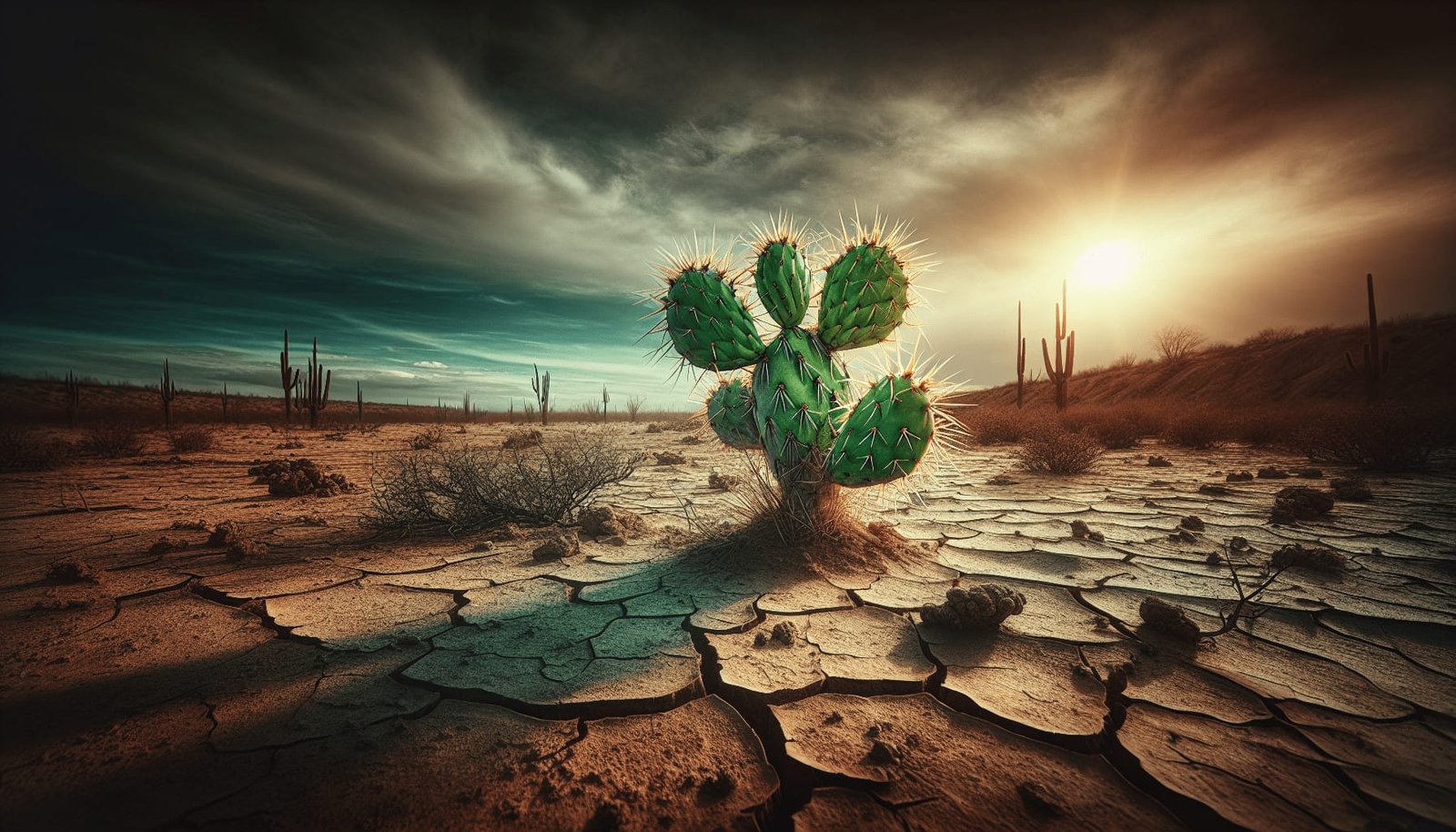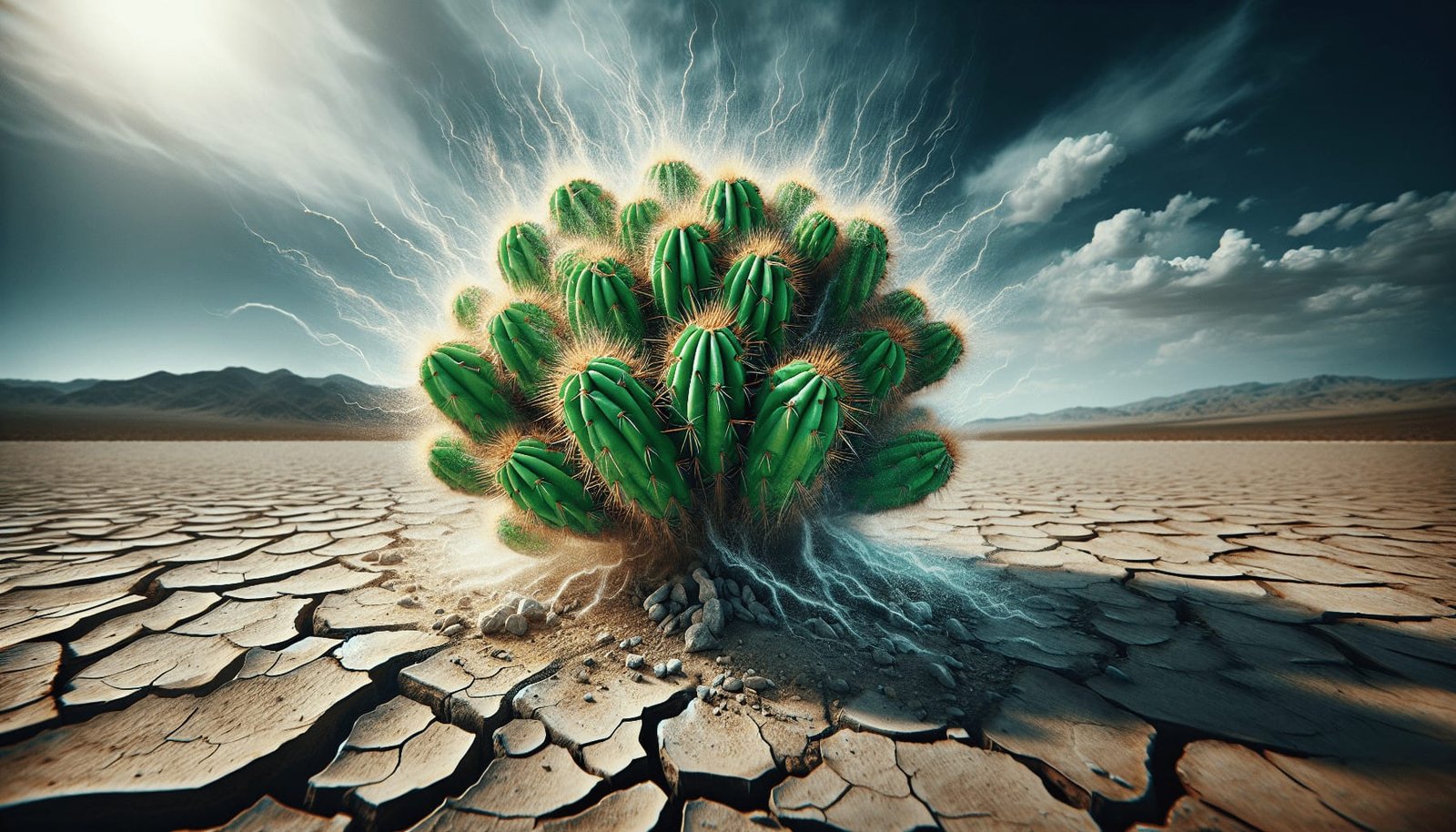How do you ensure your Nopal cactus thrives even in the harshest drought conditions?
Caring for your Nopal cactus can sometimes feel like it’s shrouded in mystery, especially when the conditions are less than ideal. The truth is, your Nopal cactus is an incredibly resilient plant that has adapted remarkably well to dry environments. However, that doesn’t mean it can be left entirely to its own devices. Understanding how to ensure its survival during drought conditions requires a bit of knowledge, some planning, and a touch of commitment.
Understanding the Nopal Cactus
What Makes Nopal Cactus Unique?
The Nopal cactus, also known as prickly pear, is not just another desert dweller. Its thick, flat pads and vibrant blooms make it stand out. More importantly, its adaptability to arid environments helps it survive in conditions where most plants would not. You might be surprised to learn that these fascinating plants also play a role in culinary dishes and traditional medicines. But their most astonishing feature is their ability to withstand prolonged droughts, a quality rooted in their biological design.
The Anatomy of Resilience
What gives the Nopal cactus its superpower-like ability to survive without water? The secret lies in its anatomical structure. The pads are capable of conserving moisture, and the spines actually reduce water loss by providing shade and reducing airflow across the surface of the cactus. This efficient water retention system is bolstered by the plant’s deep root system, which seeks out water hidden below the dry surface. Understanding this anatomy is crucial in ensuring your cactus can thrive.
Preparing for Drought Conditions
Assessing Your Environment
To ensure your Nopal cactus can withstand drought conditions, it’s important to assess the typical climate and environmental factors in your area. Does your region regularly experience periods of intense drought? How does the soil type in your garden affect water retention? Taking stock of these factors will help tailor your approach in nurturing your cactus.
Selecting the Right Planting Spot
Location, location, location! Positioning your Nopal cactus in the right spot can make a world of difference. Ideally, you want a location that receives ample sunlight, as this fuels photosynthesis. However, balance is key; too much direct sunlight, especially in scorching climates, can cause stress. Also, ensure your chosen spot has good air circulation to prevent moisture buildup, which can lead to rot.

Optimizing Soil Conditions
Importance of Well-Draining Soil
Perhaps one of the most critical factors in ensuring the survival of your Nopal cactus during drought is the soil. Cacti prefer well-draining soil that minimizes water retention. A soil mix specially designed for cacti and succulents can aid in preventing over-watering, an equally hazardous situation as drought.
Creating the Perfect Soil Mix
If you’re planning on making your own cactus soil mix, it’s not as daunting as it sounds. A blend consisting of sand, potting soil, and perlite or pumice can create the perfect environment for your cactus. This combination ensures that excess water drains quickly, leaving your plant with just enough moisture to absorb.
| Composition | Ratio |
|---|---|
| Potting Soil | 2 parts |
| Sand | 1 part |
| Perlite or Pumice | 1 part |
Watering Strategies
Understanding Water Needs
While it might seem counterintuitive, knowing when and how much to water your Nopal cactus is imperative even in drought conditions. These plants are capable of storing water, so over-watering can be as detrimental as drought. During active growth periods, typically in spring and early summer, your cactus may require slightly more water.
Frequent Mistakes to Avoid
It’s important to avoid the common mistakes many make when caring for cacti. Over-watering is the most frequent error, usually resulting from a lack of understanding of the cactus’s low water requirement. Ensure that the soil is completely dry before you water it again. Employing a schedule may not suit your cactus as it thrives under variable watering, depending on the environmental conditions and season.

Using Mulch for Better Water Retention
Benefits of Mulching
Mulching can be an excellent way to help your Nopal cactus retain moisture, especially during drought. By applying a layer of organic or inorganic mulch around the base of your cactus, you prevent moisture from rapidly evaporating from the soil. This extra layer of protection can make a significant difference during prolonged dry spells.
Choosing the Right Mulch
Organic mulch, such as wood chips or bark, is popular but can harbor pests. On the other hand, inorganic mulch like gravel or pebbles adds a layer of insulation and keeps soil temperature stable, which is more suitable for arid climates.
Pruning and Maintenance
Why Prune?
Pruning your Nopal cactus might not be something that instantly comes to mind, but it’s an important aspect of maintenance. By removing dead or damaged pads, you allow your plant to direct its energy towards healthy growth and improve air circulation, which is crucial in preventing rot.
How to Prune Correctly
Use a clean, sharp knife or scissors to prune your cactus, making clean cuts to avoid any jagged edges. It’s advisable to wear gloves to protect against sharp spines. Always monitor pruned areas for signs of disease or infection, treating them promptly if they appear.

Monitoring for Pests and Diseases
Watch for Common Pests
Even though Nopal cacti are hardy, they aren’t immune to pest invasions. Common invaders include scale insects and mealybugs. Keep an eye out for discolored patches or a sticky substance on the pads, which could indicate their presence.
Effective Treatment Methods
Should you spot a pest problem, addressing it swiftly is key. Using a soft brush to remove pests manually or applying insecticidal soap can help to manage infestations. Regular inspections will help you catch issues before they become unmanageable.
Fertilizing Your Nopal Cactus
Proper Nutrition
While Nopal cacti don’t demand much in terms of fertilizers, providing a gentle boost during their growing period can promote robust health. Opt for a balanced, water-soluble fertilizer, diluting it to half its strength to avoid overwhelming your cactus.
When to Fertilize
Fertilizing during the spring or early summer can be most beneficial when the cactus is actively growing. Avoid fertilizing during the dormant winter months, as this can disrupt the plant’s natural cycle and lead to stress.

Preparing for Emergencies
Establishing a Backup Plan
Planning for unforeseen circumstances like extreme drought or heatwaves is wise. This might include creating shade during extreme heat or sourcing a backup water supply to combat unexpected dry spells.
Joining Cactus Communities
Being a part of gardening or cactus-specific communities can be a valuable resource. These communities often share tips, advice, and offer support, providing help when you’re faced with unprecedented challenges.
Long-Term Strategies for Plant Health
Rotating Placement
Periodically rotating your cactus can prevent it from growing lopsided or leaning towards the light. This simple act ensures even growth and balances the exposure to sunlight across all pads.
Documenting Growth and Changes
Consider maintaining a gardening journal where you record changes in your cactus’s growth, appearance, and maintenance activities. This practice can help you identify patterns or issues that need addressing over time.

Conclusion
Cultivating a Nopal cactus that withstands drought conditions is equal parts science and art. By deeply understanding its biological makeup, optimizing your care routine, and remaining attentive to its changing needs, you provide your cactus with the best circumstances to not just survive, but thrive. This knowledge, balanced with a touch of patience and keen observation, gives you the confidence and skills you need to support your Nopal cactus through both abundance and scarcity. So, take these tips, apply them with care, and watch your resilient desert friend flourish season after season.

